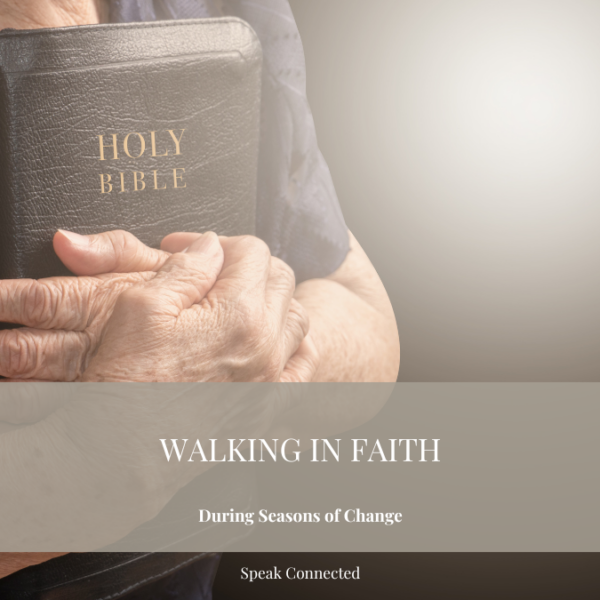In this post, you’ll discover effective techniques for studying the Bible for beginners or those looking to deepen their understanding. You’ll learn how to navigate this rich text confidently, absorb its teachings, and allow them to transform your life. Applying these techniques can turn what may seem like an overwhelming task into a rewarding spiritual journey. This guide will enhance your biblical knowledge and help cultivate a more profound connection with your faith.

Studying the Bible for Beginners
Embarking on the journey of studying the Bible for beginners can feel like stepping into a vast, uncharted territory. The Bible, composed of 66 books, is a treasure trove of wisdom, guidance, and divine truths. Yet, its depth and breadth can challenge those new to its study.
This sacred book, written over 1500 years by about 40 authors, is not just a historical record. It’s a living guide that speaks to us today. But, as with any book of such magnitude, understanding its messages can be overwhelming. This is especially true for beginners still familiarizing themselves with its structure and content.
The Bible’s rich tapestry of narratives, parables, prophecies, and teachings can enthrall and puzzle a novice reader. Its ancient language and cultural context can also add layers of complexity. However, do not let these challenges deter you. Studying the Bible for beginners is not an insurmountable task. It’s a rewarding adventure that deepens faith and enriches life.
That’s why we’ve compiled these 13 effective Bible study techniques. They serve as navigational aids to help beginners explore this sacred text. They break down the Bible study process into manageable steps, making it less daunting. These techniques provide a roadmap to navigate the Bible’s complexities and unlock profound insights.
Remember, studying the Bible is not about mastering a religious text. It’s about engaging in a transformative journey of spiritual growth and discovery. So, if you’re a beginner, take heart. With the right techniques, you can delve into the Bible’s richness and find your path illuminated by its divine truths.
1. Start with Prayer
Studying the Bible is more than just an intellectual exercise. It’s a spiritual endeavor that seeks divine truth and wisdom. That’s why the first and most crucial step is prayer. This might seem simple, but it sets the tone for your entire study session.
In prayer, you open your heart to God, acknowledging your need for His guidance. You admit that understanding the Bible isn’t something you can do entirely alone. Instead, you need the Holy Spirit to illuminate the scriptures, reveal their truths, and help you apply them.
You might be wondering, how should you pray? There are no hard and fast rules. Prayer is simply a conversation with God. You can express your thoughts, hopes, fears, and questions honestly and openly. However, when it comes to studying the Bible, there are a few things you might want to include in your prayer.
Firstly, ask God to clear your mind of distractions. In our busy, noisy world, it’s easy to bring our worries and preoccupations into our study time. A focused mind is crucial for absorbing and understanding the Bible’s teachings.
Secondly, ask for wisdom and understanding. The Bible says in James 1:5, “If any of you lacks wisdom, let him ask God, who gives generously to all without reproach, and it will be given him.”
Lastly, ask God to soften your heart and make it receptive to His word. The Bible can challenge our beliefs, convict us of our wrongdoings, and call us to change. Pray for a humble heart that’s open to transformation.
Starting your Bible study with prayer is a powerful practice. It invites God into your study time, aligns your heart with His, and paves the way for profound insights and personal growth.
2. Use a Study Bible
When you’re new to studying the Bible, it’s like embarking on an expedition through unfamiliar terrain. This is where a study Bible comes into play. It’s like your personal guide, providing necessary tools that make exploring the biblical landscape more comprehensible and enjoyable.
A study Bible is not your average Bible. It comes packed with additional features to enhance your understanding of the text. These include explanatory notes, cross-references, maps, timelines, and commentary from biblical scholars. Each element serves a specific purpose in helping you understand the Bible’s message.
Explanatory notes are like mini-lessons embedded right into the pages of your Bible. They offer insight into the text’s historical, cultural, and theological context. They explain unfamiliar terms, highlight significant themes, and clarify confusing passages.
Cross-references are another helpful feature. They link related verses together, allowing you to see how different parts of the Bible interconnect. This can lead to deeper understanding as you discover the Bible’s unity and coherence.
Maps and timelines provide a geographical and historical perspective. They help you visualize the events of the Bible, giving you a sense of location and time. This can significantly enhance your understanding of the narratives and their significance.
Commentaries offer scholarly interpretations of the text. They delve into the meaning of the text, providing in-depth analysis and application. This can be particularly helpful when dealing with complex or controversial passages.
Using a study Bible doesn’t mean you’re outsourcing your thinking. On the contrary, it equips you with knowledge and context, enabling you to engage with the scriptures more thoughtfully and critically.
A study Bible is an invaluable tool for beginners. It enriches your study experience, deepens your understanding, and empowers you to navigate the Bible with confidence and clarity.
3. Read in Context
Understanding the Bible is akin to assembling a vast, intricate puzzle. Each verse is a piece of that puzzle. While every piece holds value, its significance comes to light only when placed within the larger picture. This is why reading in context is crucial when studying the Bible for beginners.
The Bible isn’t just a collection of isolated verses. It’s a tapestry of interwoven narratives, teachings, and prophecies. Each passage contributes to the overarching themes and messages of the Bible. Hence, a verse taken out of context might be confusing or misleading. But when read as part of its surrounding text, its meaning can become more apparent.
Reading in context involves considering the immediate surroundings of a verse – the verses before and after it. This helps you understand the flow of thought and the specific point. For example, a command given to a particular group at a time might not apply universally.
Moreover, reading in context includes understanding the book’s purpose and audience. Different books of the Bible have different aims. Some narrate history, some offer wisdom, and others prophesy future events. Knowing the purpose of the book can shed light on the meaning of its content.
Finally, consider the broader biblical context. The Bible tells one grand story of God’s relationship with humanity. Understanding where a passage fits into this grand narrative can give you deeper insights.
Reading in context is a fundamental skill in Bible study. It safeguards against misinterpretation, enhances understanding, and reveals the richness of the biblical text. So, as a beginner, always remember: that context is key.
4. Use a Bible Dictionary
Like any book written in a different time and culture, the Bible contains terms, places, and names that may be unfamiliar to modern readers. Understanding these elements is crucial to fully grasping the biblical narrative. That’s where a Bible dictionary comes in handy when studying the Bible for beginners.
A Bible dictionary is a reference tool that provides definitions and explanations of biblical words, names, places, and concepts. It’s like a regular dictionary, but it is specifically tailored to the Bible’s content.
Unfamiliar terms can often be stumbling blocks to understanding. Words like “sanctification,” “propitiation,” or “eschatology” might seem intimidating at first. However, with a Bible dictionary, you can quickly look up these terms and gain a clear understanding of their meaning.
Moreover, the Bible is filled with names of people and places. Keeping track of them all, from Abraham to Zechariah and from Antioch to Zion, can be challenging. A Bible dictionary provides concise profiles of biblical characters and descriptions of biblical locations, helping you to remember who’s who and what’s where.
Additionally, a Bible dictionary can help you understand vital biblical concepts. Concepts like covenant, grace, or kingdom of God underpin much of the Bible’s message. Having a solid grasp of these concepts can significantly enhance your understanding of the Bible as a whole.
Using a Bible dictionary isn’t about memorizing every term or name. It’s about seeking clarity when needed, enhancing your understanding of the text, and enriching your Bible study experience.
A Bible dictionary is a vital tool for beginners when studying the Bible. It demystifies unfamiliar terms, illuminates biblical characters and places, and deepens your understanding of key biblical concepts.
5. Take Notes
One of the most effective ways to engage with the Bible is to interact with the text actively. This is where note-taking comes in. It’s a simple yet powerful tool for beginners to study the Bible.
Note-taking during Bible study isn’t about merely transcribing the text. It’s an interactive process that helps you digest your reading, ask questions, make connections, and record insights. This active engagement aids in understanding, retention, and application of the biblical message.
Start by jotting down your thoughts as you read. What strikes you about the passage? What emotions does it evoke? What challenges does it present? Recording these thoughts can help you engage more deeply with the text.
Next, write down any questions that arise. The Bible is complex, and it’s natural to have questions. Rather than glossing over them, note them down. These questions can guide your further study and spark meaningful discussions with others.
Also, keep track of the insights you gain. These could be new understandings of a verse, connections between passages, or personal applications. Writing these insights down can help solidify them and provide points for further reflection.
Remember, your notes are for you. They don’t need to be perfectly organized or eloquently phrased. They’re a tool to help you interact with the text and remember what you’ve learned.
Taking notes is a valuable practice when studying the Bible for beginners. It encourages active engagement with the text, enhances comprehension and memory, and records your learning journey. So, grab a notebook and start jotting down your thoughts, questions, and insights as you delve into the Bible.
6. Join a Bible Study Group
Engaging with the Bible is a personal journey, but it’s not one that you have to undertake alone. Joining a Bible study group can enhance your understanding and deepen your faith. It’s a valuable step in studying the Bible for beginners.
A Bible study group provides a supportive community of fellow seekers. As you explore the scriptures together, you can learn from each other’s insights and experiences. This shared exploration can shed new light on familiar passages and open fresh perspectives.
Moreover, a Bible study group fosters a sense of belonging. You’re not just studying a book; you’re part of a community united by a common quest for understanding. This camaraderie can be encouraging, especially when encountering challenging passages or concepts.
In these groups, questions are welcomed, and discussions are encouraged. You can bring it to the group if you’re puzzled by a verse or intrigued by a theme. Together, you can delve deeper into the text, facilitating a richer understanding than you might achieve alone.
Furthermore, a Bible study group offers opportunities for mutual support. Members can encourage each other in their spiritual journeys, provide comfort in times of struggle, and celebrate together in times of joy.
Lastly, being part of a Bible study group can lead to personal growth. As you grapple with the Bible’s teachings, discuss them with others, and apply them to your life, you can experience spiritual development and character formation.
Joining a Bible study group can significantly enhance your Bible study experience. It offers a supportive community, encourages deep discussion, provides mutual support, and fosters personal growth. So, as a beginner, consider finding a group to share your journey through the Bible.
7. Use a Concordance
A concordance is an invaluable tool for Bible study, especially for beginners. It’s essentially an alphabetical index of words used in the Bible, listing every occurrence of each word and the context in which it appears.
Using a concordance can deepen your understanding of specific biblical words. By seeing how a word is used throughout the Bible, you gain insight into its meaning and significance. This can illuminate the text in new ways, making your study more meaningful and enriching.
For example, if you’re studying the concept of ‘love’ in the Bible, a concordance can help you locate all the verses where ‘love’ is mentioned. By reading these passages, you can understand the various dimensions of love according to the biblical perspective.
Additionally, a concordance can help you trace themes or topics across the Bible. If you’re interested in exploring what the Bible says about ‘forgiveness’, ‘faith’, or ‘justice’, a concordance can guide you to the relevant verses.
Moreover, using a concordance can enhance your Bible study by connecting Old and New Testament teachings. Many themes and concepts are woven throughout both Testaments, and a concordance can help you discover these links.
It’s important to note that while concordance is a powerful tool, it doesn’t replace careful reading and reflection. Instead, it aids your study by providing a roadmap to the text.
Using a concordance can significantly enrich your Bible study. It provides a comprehensive overview of how words are used in the Bible, helps trace themes across the text, and connects Old and New Testament teachings. So, consider incorporating a concordance into your study routine when studying the Bible for beginners.
8. Reflect on What You’ve Read
Reflection is crucial in studying the Bible, especially for beginners. After reading a passage, consider its meaning and implications.
Start by pondering the critical message of the text. What is it trying to convey? How does it relate to the broader context of the Bible? These questions help you grasp the central theme.
Next, consider how the passage applies to your life. The Bible isn’t just an ancient text; it’s a living document relevant to contemporary life. Does the passage offer guidance for a situation you’re facing? Does it provide comfort, encouragement, or challenge?
Consider also how the passage challenges you. The Bible often presents ideals and principles that can be difficult to live up to. Reflecting on these challenges can lead to personal growth and spiritual development.
Furthermore, reflection helps you internalize what you’ve read. By taking time to mull over a passage, you’re more likely to remember it and be able to recall its lessons when needed.
Don’t rush this process. Reflection is not about reaching quick conclusions; it’s about deepening your understanding and making personal connections with the text.
In addition, consider sharing your reflections with others. This can lead to valuable discussions and shared insights.
Reflecting on what you’ve read is vital to studying the Bible. It helps clarify the text’s message, connects it to your life, challenges you to grow, and aids in internalizing the lessons. So, after reading a passage, pause and let its message sink in.
9. Memorize Verses
Memorizing verses is a powerful strategy for Bible study, especially for beginners. It allows you to internalize the teachings of the Bible and have them readily available in times of need.
Starting with key verses can be helpful. Choose verses that resonate with you or carry significant messages. These could include promises, commands, or statements about God’s character.
Repetition is essential when memorizing. Read the verse aloud several times a day until it sticks. Please write it down, post it where you’ll see it often, or even set it as your phone’s wallpaper.
Moreover, understanding the context of the verse enhances memorization. Knowing the story or message surrounding the verse makes it more meaningful and accessible to recall.
Break down longer verses into smaller parts. Memorize one phrase at a time, gradually adding more until you’ve learned the entire verse.
Also, consider using mnemonic devices like acronyms or association techniques. These can make memorization more engaging and effective.
Another technique is to recite the verse before bed. Studies suggest that information learned before sleep is better retained.
Memorizing verses is not just about rote learning. It’s about reflecting on the words, understanding their meaning, and allowing them to shape your thoughts and actions.
Finally, remember that the goal is not to amass an extensive collection of memorized verses but to enrich your spiritual life and deepen your understanding of the Bible.
Memorizing verses can significantly enhance your Bible study. It helps you internalize biblical truths, recall them when needed, and deepen your relationship with God’s word. Begin with key verses, understand their context, break them into parts, use mnemonic devices, and reflect on their meaning.
10. Use Online Resources
Online resources have revolutionized Bible study, offering a wealth of tools. They can significantly enhance your understanding of the Bible.
One of these resources is online Bibles. They often have built-in study tools like commentaries, cross-references, and word studies. Some even offer different translations, allowing you to compare and understand the text better.
Video teachings are another excellent online resource. These can be found on platforms like YouTube or church websites. They provide visual and auditory learners with a more engaging way to study the Bible.
Detailed commentaries are also available online. These offer in-depth explanations of each book of the Bible, providing historical context, explaining difficult passages, and highlighting key themes.
Online Bible study guides can help structure your study. They often include reading plans, reflection questions, and practical applications.
Bible apps are a convenient resource for studying on the go. Many offer features like daily devotionals, audio Bibles, and verse memorization tools.
Online forums and social media groups provide a platform for discussion and shared learning. Here, you can ask questions, share insights, and learn from others’ perspectives.
Podcasts are another great resource. They offer Bible teachings, interviews with scholars, and discussions on various biblical topics.
Remember, while online resources are incredibly helpful, they should complement, not replace, personal study and reflection.
Online resources can significantly enhance your Bible study. From online Bibles, video teachings, commentaries, study guides, apps, and forums to podcasts, there’s a wealth of tools to deepen your understanding. So, take advantage of these resources to enrich your Bible study journey.
11. Read Different Translations
Reading different translations is a valuable strategy for Bible study. It provides varied perspectives and can clarify complex passages.
Each translation of the Bible offers a slightly different interpretation of the original languages. Some aim for word-for-word accuracy, while others strive for thought-for-thought clarity.
For instance, the King James Version (KJV) is known for its poetic language and literal translation. On the other hand, the New International Version (NIV) is praised for its readability and clear modern English.
Comparing these versions can illuminate nuances in the text. An unclear phrase in one translation might be easier to understand in another.
Additionally, reading different translations can deepen your appreciation of the Bible’s literary beauty. The variety of language can highlight various aspects of the text’s poetry, wisdom, and narrative.
Consider also using a parallel Bible. This tool presents several translations side by side, making comparison easy.
However, it’s important not to rely solely on one translation. Each has strengths and weaknesses, and none can perfectly capture every aspect of the original text.
Remember, the goal is to understand the Bible’s message as accurately as possible. Different translations can aid in this endeavor by providing multiple interpretations and insights.
Reading different translations can significantly enhance your Bible study. It brings out nuances, deepens appreciation of the text, and aids in understanding. So, try reading a few different translations and discover the richness they offer.
12. Follow a Reading Plan
A reading plan is an effective tool for Bible study. It provides structure, ensures consistency, and helps you navigate the Bible’s vast content.
Reading plans come in various formats. Some guide you to read the Bible in a year, while others might focus on specific books or themes.
A chronological reading plan can be enlightening. It arranges the Bible’s events in the order they occurred, providing a historical perspective.
Thematic plans focus on specific topics, such as faith, love, or forgiveness. They can deepen one’s understanding of key biblical concepts.
A New Testament in 30 days plan is another option. This allows you to immerse yourself in the teachings of Jesus and the early church.
Remember, the aim is not to rush through the text but to absorb and reflect on its meaning. So choose a pace that suits you.
Also, consider using a digital reading plan. Many Bible apps offer customizable plans, reminders, and progress tracking.
Any reading plan must be consistent. Try to set aside a specific time each day for your Bible study.
Lastly, don’t be discouraged by missed days. The goal is progress, not perfection. Just pick up where you left off.
Following a reading plan can significantly enhance your Bible study. Whether a yearly, chronological, thematic, or 30-day plan, it provides structure and ensures you cover key passages. So, find a plan that suits your pace and stick with it. Consistency is critical, and the aim is progress, not perfection.
13. Don’t Rush
Studying the Bible is a journey, not a race. It’s about absorbing the words, understanding their meaning, and allowing them to transform your life.
Don’t rush through the text. Instead, take time to contemplate each verse. Ponder its message and relevance to your life.
Try reading passages out loud. This can slow you down and help you focus on every word. It also allows you to hear the rhythm and poetry of the language.
Also, consider journaling as you study. Write down your thoughts, questions, and insights. This will slow down your reading and deepen your engagement with the text.
Remember to pause and pray during your study. Ask for guidance and wisdom to understand the scriptures. This practice cultivates a heart of reflection and openness to God’s word.
Don’t be pressured to cover a certain amount in each session. Some days, you might delve into a whole chapter; other times, a single verse might demand your attention.
Consider using the S.O.A.P method—Scripture, Observation, Application, Prayer. This method encourages slow, thoughtful reading and application of the Bible.
Also, remember that understanding comes over time. You might not grasp everything immediately, and that’s okay. The Bible is a complex book, and its truths often unfold gradually.
Don’t rush your Bible study. Take time to read, reflect, and respond. Let the words soak in and transform your heart and mind. Remember, it’s a journey of understanding and transformation, not a race to the finish line.
Conclusion
In wrapping up, Bible studying needn’t be intimidating or stressful. You can confidently dive into this deeply meaningful text with the right strategies.
Start small, and don’t rush. Let the words gently seep into your heart and mind whether you’re a long-time believer or new to faith.
Try different translations for diverse viewpoints. Each offers a unique perspective on the biblical narrative, enhancing your comprehension.
Follow a reading plan that fits your rhythm and liking. Whether chronological, thematic, or annual, it adds structure and ensures key passages aren’t missed.
Reflect and journal your insights during the study. This deepens your connection with the text and promotes personal growth.
Remember, Bible study is a transformative journey of discovery. It’s less about speed and more about deeply engaging with God’s word.
These techniques aid you in traversing the Bible’s rich tapestry. They aim to make your study more rewarding, enjoyable, and life-changing.
As you start this journey, approach it with an open heart and inquisitive mind. Relish the process, anticipate the revelations, and welcome the transformation.
Studying the Bible is indeed a fulfilling quest. It’s a pathway of faith, growth, and profound understanding. So, courageously, arm yourself with these strategies and delve into this rich text.
Before you go, don’t forget to join our newsletter for more valuable insights. You might also enjoy other blog posts on our site, like “Understanding Bible Verses” and “Exploring Biblical History.”
Happy Bible studying!






